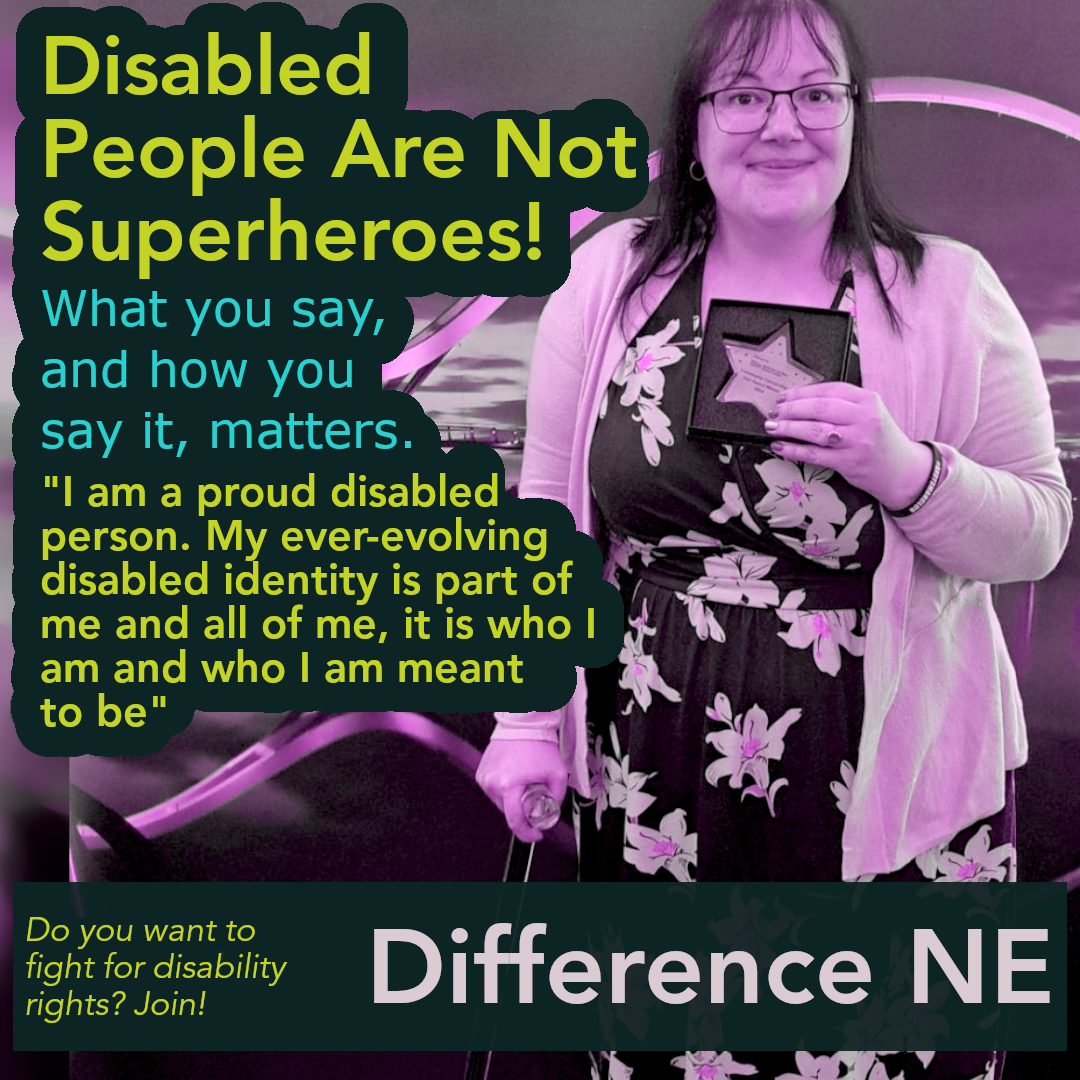Why Should You Avoid Calling Disabled People Superheroes?
Over the last two years I couldn’t work in ‘traditional’ paid employment, so I took part in lots of volunteering from home. I spent two years as a patient representative working alongside the British Society of Gastroenterology helping to write the new best practice guidelines. I mentored a PhD fellow in the importance of public involvement in research. Not only that, but I’ve joined patient experience panels at my local hospital and in my local council.
I’m not telling you all this for praise (although it’s always welcomed), I’m telling you because I want you to understand what I’m passionate about. I advocate and shout loudly that disabled people are the experts in their own lives, we know what we need and should be involved at every point. Co-producing solutions with our rights, needs and wishes firmly in focus. I’m proud of my work in challenging stereotypes and making sure we have a seat at every table, especially the tables where decisions are being made about us.
How Does Language Affect the Way Society Views Disability?
I must have done something right because I was nominated for, and won, a community award. And this is where my story begins.
I attended the awards evening and collected my award alongside lots of other amazing local people. The event was accessible, I got my photo taken, and I felt really proud of my achievements and recognition.
The next day, I logged onto social media and saw the write-up:
“Claire is quite simply a real-life superhero, learning to cope with two life-long incurable conditions and still finds time to volunteer on various groups…”
My heart dropped. I was so frustrated and really disappointed. Being referred to as a ‘superhero’, with the wider context suggesting that I manage to ‘find time’ to volunteer ‘in spite of’ being disabled.
What Are the Dangers of Tokenism in Disability Representation?
There was no malice in the writing, and I honestly believe it was written with good intention, but it was so condescending. This language implies that disabled people can only achieve things if they ‘overcome’ and just ‘get over’ their disability and do things in spite of any difficulties and barriers they face.
Let me try to explain a bit more. It would be very silly to only describe someone as one facet of their identity. You wouldn’t make someone’s entire award about the fact that they wear glasses? Can you imagine…
“Claire is quite simply a real-life superhero, learning to cope with wearing glasses for her visual impairment and still finds time to volunteer on various groups…”
It is absurd… and no one would ever write it… yet we do, and they did.
How Can You Use Inclusive Language to Empower Disabled People?
I’ve thought about this language a lot. I think people are just afraid to say the word disabled. We do linguistical Olympics trying to say everything but the word – we say, “differently-abled” or “special” or “physically challenged”. Then we end up using terms like superhero and think it’s okay. Just say disabled.
I did raise this issue (I wouldn’t deserve the award if I didn’t!) and I had a positive discussion with the communications team and the post was quickly updated to be more inclusive. But the experience did tarnish the recognition, and I felt like I was just there as the ‘tokenistic’ disabled person.
And that’s the power language can have, it can be disabling or empowering.
What Are Common Misconceptions About Disability in the Media?
This is part of a wider issue. Stories in the media focus on disability as two polar opposites. It’s either something that is negative, describing disabled people as objects of pity or charity, described as ‘suffering’ or ‘afflicted by’ a disability, something tragic that we need to ‘overcome’. Or the opposite, we are superheroes, put on a pedestal to model what can be done if you don’t let impairment ‘hold you back’.
For most people, or at least my friends and family, disability is just something we live with, we navigate the ups and downs, and we adapt. Most of the barriers I deal with every day are put in place by society and ableism, and not my conditions.
The words we use have weight and influence. The words are the barrier, not my wobbly legs and misbehaving bowels.
I am reminded of a recent article I read, where the author, Laura, wrote “I’m living my life as the person I’m meant to be, not in spite of the person I am”. I really resonated with this.
I am a proud, disabled person. My ever-evolving disabled identity is part of me and all of me, it is who I am and who I am meant to be.
Disclaimer. I’m not a natural writer. The topic of language for me can be a bit ironic, as those who know me will tell you many tales of my poor grammar, terrible spelling and how, not reading my messages before sending them, has led to some very embarrassing typos. These are my experiences; they won’t and can’t reflect the experiences of anyone who has been in similar situations.
Reference
Cameron, C., & Smith, L. (2024). I’m living my life as the person I’m meant to be, not in spite of the person I am. Disability & Society, 1–6. https://doi.org/10.1080/09687599.2024.2407831

